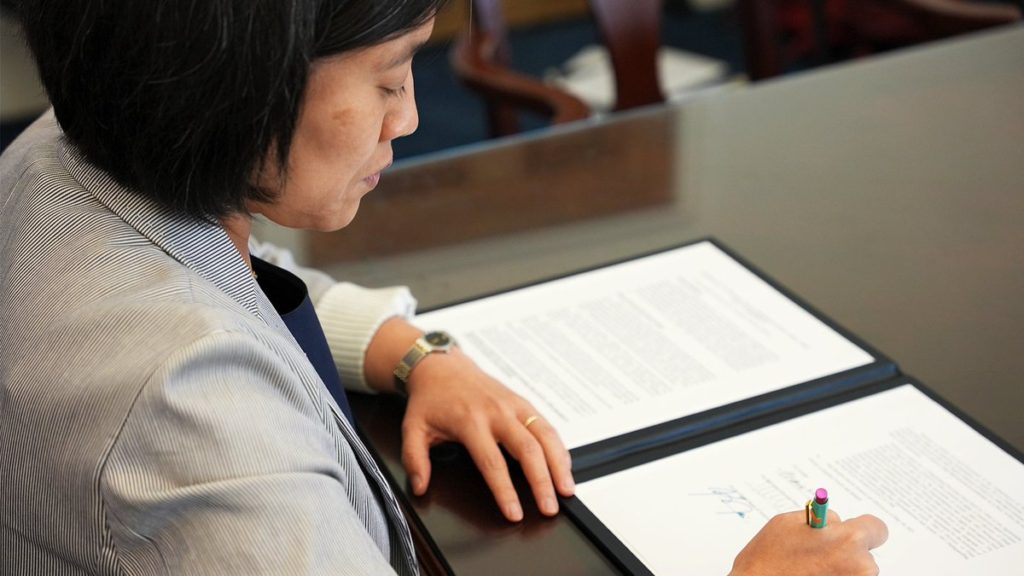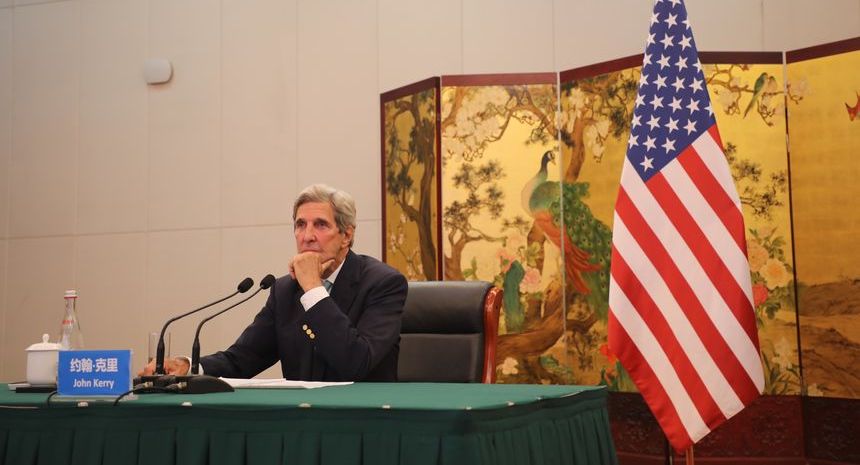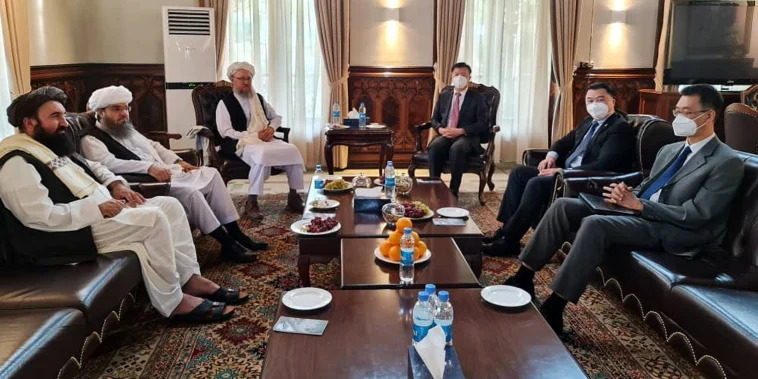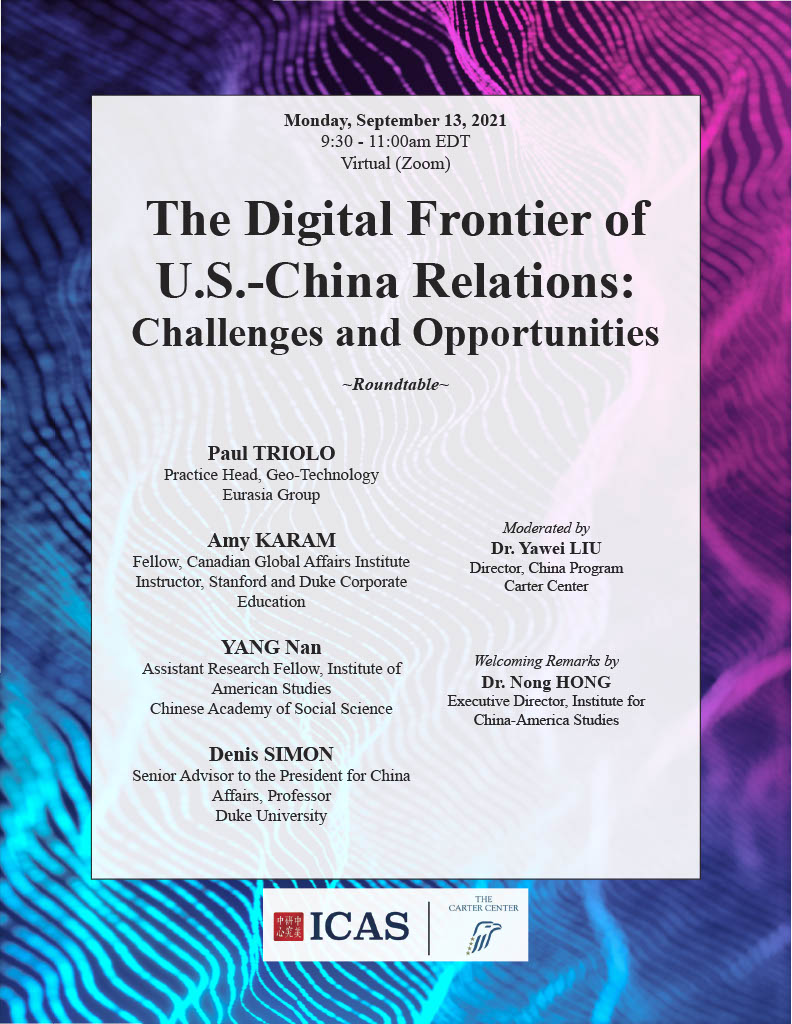

– On September 6, a China Securities Regulatory Commission official openly warned against “malicious actions” facilitating capital outflows from China as the U.S. Federal Reserve considers measures that have triggered hot money flows from China in the past.
– On September 2, Chinese President Xi Jinping said China will establish a new Beijing stock exchange to help finance innovative small companies.
– A U.S. House of Representatives subcommittee on investor protection will hold a hearing on September 22 to examine the risks that U.S.-listed Chinese companies pose to investors and the U.S.
– China Securities Regulatory Commission officials plan to prevent companies with sensitive user data from seeking foreign initial public offerings, according to sources.
– An influential Wall Street Group, dubbed the China-U.S. Financial Roundtable, is arranging to talk with high-level Chinese government officials before the end of the year.
Associated News References:
“China warns of ‘malicious’ capital outflows as financial markets brace for US tapering,” South China Morning Post, September 6 [Paywall]
“Xi Plans New Chinese Stock Exchange to Boost Small Businesses,” Bloomberg, September 2 [Paywall]
“US lawmakers to discuss risks from US-listed Chinese firms,” Al Jazeera, August 31
“China Plans to Ban U.S. IPOs for Data-Heavy Tech Firms,” The Wall Street Journal, August 27 [Paywall]
“Wall Street, China to Revive Talks in Hunt for Common Ground,” Bloomberg, August 25 [Paywall]

– Micronesia is acquiring U.S. funding to construct a Pacific undersea communication cable, after rejecting Chinese firms that Washington says will compromise regional security.
– A number of U.S. corporations are lobbying Congress and the Biden administration to reduce tariffs on China and avoid adopting tougher trade policy.
– Given summer recess and slow congressional movement, a comprehensive legislation to counter Chinese competitiveness in cutting-edge technology will not be passed until at least September 20.
– On August 24, in a meeting with American business associations, USTR Katherine Tai indicated that the administration is carrying out a “comprehensive review of U.S.-China trade policy” which is unlikely to be completed in the near future.
– The U.S. Department of Commerce has granted limited licenses authorizing suppliers to sell Huawei certain auto chips, a move sharply criticized by some Republican lawmakers.
Associated News References:
“EXCLUSIVE: U.S. funding tapped for Pacific undersea cable after China rebuffed,” Reuters, September 3 [Paywall]
“Corporate America fights uphill battle against anti-China push,” Politico, September 1
“Businesses Push Biden to Develop China Trade Policy,” The New York Times, September 1 [Paywall]
“Vote on US ‘China bill’ recedes to fall or beyond,” Nikkei Asia, August 27
“The U.S. is reviewing its trade policy with China, says USTR Katherine Tai,” CNBC, August 25
“EXCLUSIVE: Huawei gets U.S. approvals to buy auto chips, sparking blow back,” Reuters, August 25 [Paywall]

– On September 3, following high-level meetings between John Kerry and his Chinese counterpart, Xie Zhenhua, Beijing refused to make any public commitments to carbon reduction telling Kerry that “China will follow its own climate road map.”
– From August 31-September 3, John Kerry travelled to Japan and China in an attempt to build consensus with his counterparts on reducing global carbon emissions.
– On August 28, on the eve of John Kerry’s trip to East Asia, Chinese Foreign Minister Wang Yi accused the U.S. of stoking conflict with China at the expense of global climate cooperation, adding that “the ball now is in the US court.”
-Analysts believe Beijing likely wants concessions that Biden’s administration cannot cede ground on in return for climate cooperation, such as Taiwan, the South China Sea, and other hot button issues.
Associated News References:
“US Climate Envoy Kerry Gets Cold Shoulder in China,” Voice of America, September 4
“China ‘tells US envoy John Kerry it will follow its own climate road map’,” South China Morning Post, September 3 [Paywall]
“China says US tensions threaten fight against climate change,” Financial Times, September 2 [Paywall]
“U.S. climate envoy Kerry visits Japan, China for emissions talks,” Reuters, August 31 [Paywall]
“Kerry will travel to China and Japan to negotiate on climate action next week,” CNN, August 26

– On September 7, Beijing denied allegations that China was preparing to take over the formerly U.S.-operated Bagram Airfield in Afghanistan.
– On September 3, Abdul Salam Hanafi, the deputy director of the Taliban’s political office, told Beijing that the new government would “actively support” Chinese involvement in Afghanistan’s post-war reconstruction, calling China “a trustworthy friend of Afghanistan.”
– On August 31, the Chinese Foreign Ministry hailed the U.S withdrawal from Afghanistan, arguing that the country has “free[d] itself of foreign military occupation…ushered in a new beginning for national peace and reconstruction, and…has turned a new page.”
– On August 30, Taliban Spokesperson Zabihullah Mujahid used the Chinese state television channel, CGTN, to accuse the U.S. of killing Afghan civilians in its August 29 drone strike on ISIS-K.
Associated News References:
“China denies it is taking over Afghan military site that was US base,” South China Morning Post, September 7 [Paywall]
“Taliban to ‘actively support’ belt and road plan of ‘trustworthy friend’ China,” South China Morning Post, September 3 [Paywall]
“China says Afghanistan has ‘turned a new page’ after US withdrawal,” Channel News Asia, August 31
“Taliban says U.S. drone strike in Kabul also killed civilians – Chinese state TV,” Reuters, August 30 [Paywall]

– On September 1, the Pentagon rebuffed China’s new rule that all ships sailing through the South China Sea must register with Chinese authorities.
– During her August 21-26 trip to Southeast Asia, Vice President Kamala Harris criticized China’s maritime claims in the South China Sea and stressed that the U.S. would stand with regional allies to protect a rules-based maritime order.
– On August 24, Vietnam’s Prime Minister Pham Minh Chinh told China that his country would not side with the U.S. against China after Vice President Harris implored him to stand against Chinese “bullying.”
Associated News References:
“US says new Chinese rule that vessels register for South China Sea access threatens freedom of navigation,” South China Morning Post, September 2 [Paywall]
“VP Harris Stresses U.S. Commitment to Indo-Pacific During Regional Tour, Calls Out Chinese Aggression,” USNI News, August 27
“Harris calls on Vietnam to join in opposing China ‘bullying’,” Politico, August 25
“Vietnam says it will not side against China, as US’ Kamala Harris visits,” South China Morning Post, August 25 [Paywall]

“China Trade Surges to New Records on Strong U.S., EU Demand,” Bloomberg, September 6 [Paywall]
“‘China is not the Soviet Union’ says Beijing’s envoy to Washington,” South China Morning Post, September 1 [Paywall]
“China Slashes Kids’ Gaming Time to Just Three Hours a Week,” Bloomberg, August 30 [Paywall]
“China Commentary Calls Xi’s Crackdown a ‘Profound Revolution’,” Bloomberg, August 30 [Paywall]
“DOJ brands Chinese-owned U.S. newspaper a foreign agent,” Axios, August 25
“New U.S. Intelligence Report Doesn’t Provide Definitive Conclusion on Covid-19 Origins,” The Wall Street Journal, August 24 [Paywall]
August 17 hosted by Center for Strategic & International Studies
August 17 hosted by SupChina
August 27 hosted by George H.W. Bush Foundation for U.S.-China Relations
September 8 hosted by Duke University Asian/Pacific Studies Institute
September 8 hearing held by United States-China Economic and Security Review Commission
September 10 hosted by Wilson Center
September 16 hosted by Center for Strategic & International Studies
September 16 hosted by Wilson Center
September 16 hosted by U.S. Heartland China Association
September 29 hosted by Wilson Center
Monday, September 13, 2021
9:30am – 11:00am EDT

The digital frontier is an arena of immense opportunity as major economies race to build a smart digital economy fueled by a range of innovations such as 5G, artificial intelligence (AI), cloud computing and the internet of things (IoT). The worldwide market for new digital technologies is expected to reach into the trillions of dollars by 2025 and significant domestic growth potential is expected to reside in these markets. The digital frontier is also an arena of growing challenges as citizens, businesses and governments fret over the loss of control over their data, the potential theft of their intellectual property (IP), and their ability to shape and enforce legislation in the digital environment. Compounding these challenges is the increasingly bitter U.S.-China geopolitical rivalry, including in the digital space where both parties have adopted a variety of heavy-handed approaches to protect data and technologies.
The Institute for China-America Studies Trade ‘n Technology (TnT) Program is pleased to co-host this event with our partners at the Carter Center. The event will feature global experts who will discuss the immense opportunities and growing challenges of this rapidly evolving digital frontier.
by Dr. Denis Simon
August 28, 2021
It is time for someone to take a contrarian, positive-sum view about the current situation regarding United States-China science and technology (S&T) cooperation and academic exchanges.
The S&T cooperation and educational and scholarly exchanges components of the US-China relationship were first consummated during the 1978-79 period as China was just re-opening to the outside world. Early exchanges were limited in number as were the numbers of Chinese students and scholars coming to the US. Most students were graduate students and were funded by the Chinese government. Aside from Chinese nuclear weapons, few were concerned about any economic or technological threat or competition from China.
Given the prevailing state of the Chinese economy at the time and the level of technology in place in Chinese industry, China was just an afterthought other than perhaps the lingering dream of one billion potential customers. Even as Chinese leaders talked openly and explicitly about closing the technology gap with the West and eventually catching up, the prospect of a serious challenge from China seemed unlikely at a minimum…
This commentary was originally released on the University World News website on August 28, 2021.
This commentary was originally released on the South China Morning Post website on September 2, 2021.
by Alec Caruana
August 31, 2021
When President Biden defended his decision to withdraw U.S. forces from Afghanistan on August 16, 2021, he identified “preventing a terrorist attack on the American homeland” as the United States’ “only vital national interest in Afghanistan.” This narrow focus notably parallels a recent tone struck by Chinese Foreign Minister Wang Yi, who remarked that the Taliban must “resolutely crack down on all kinds of terrorist organizations and avoid becoming a gathering place for terrorists again.” While the U.S. and China are in rare agreement that Afghanistan must not become a safe haven for terrorists, their diametrically opposed narratives of what the withdrawal means for great power competition make trivial ‘cheap shots’ at the other’s expense more attractive than finding a happy medium on counterterrorism going forward…
On Friday, August 27, 2021 Senior Fellow Sourabh Gupta discussed the situation in Afghanistan on CGTN’s World Insight with Tian Wei.

On Thursday, August 26, 2021 Executive Director Dr. Nong Hong discussed the Quad’s 4-day naval exercises off Guam on RT’s America In Question.


The Institute for China-America Studies is an independent nonprofit, nonpartisan research organization dedicated to strengthening the understanding of U.S.-China relations through expert analysis and practical policy solutions.
1919 M St. NW Suite 310,
Washington, DC 20036
icas@chinaus-icas.org
(202) 968-0595
© 2024 INSTITUTE FOR CHINA-AMERICA STUDIES. ALL RIGHTS RESERVED.